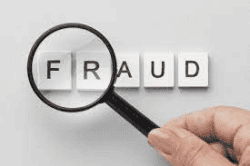Being a landlord can be extremely rewarding but it also has its challenges and responsibilities, both legal and practical.
One of the key pieces of legislation to be aware of is the Homes (Fitness for Human Habitation) Act 2018, which states that landlords have a duty to ensure that the property is safe and fit for human habitation throughout the tenancy.
As a landlord, one essential step is to carry out a pre-tenancy inventory. This initial inspection of the condition of the property should be done with everyone present and will make disputes much easier to resolve because there is written/photographic evidence.
A regular property inspection is recommended for the benefit of both parties. It allows the landlord to make sure that the tenants are not doing anything that is in breach of the agreement, for example, subletting, smoking indoors, keeping pets, and it allows tenants to highlight any issues such as repairs that may be required.
How often should inspections take place?
Quarterly or six-monthly inspections are both considered reasonable. Carrying them out at these intervals should allow for changes in weather that may cause or reveal problems. It is definitely worth letting your tenant(s) know at the beginning of the tenancy that you want to carry out periodic inspections, and how often. You should also include it in your tenancy agreement for the avoidance of doubt.
Extra protection against fraud
If you are a landlord, then you might benefit from adding a Form LL restriction to the title register. The Form LL restriction is also known as the ‘counter-fraud’ restriction because it makes it harder for someone who is not the legal owner to sell a property. For example, your tenants could, in theory, pretend to be you and try to sell the property. The Form LL restriction makes this almost impossible as it requires extra identity checks to be undertaken when any sale is attempted. It is unlikely that any fraudster can get around these additional checks.
What you should look out for during the inspection
The main things to focus on at a periodic inspection include:
– Making a note of any items that are missing/damaged that were on the initial inventory
– Checking the batteries in the fire alarms are working
– Checking the condition of the carpets/flooring
– Making sure the heating is working
– Checking that all major appliances work
– Identifying any stains or burn marks on decoration and furnishings, notably from smoking
– Any evidence of pets (if not permitted)
– Any signs of damp/mould
– Checking all taps for leaks/drips
Taking photos is an excellent way to document the inspection and provides useful evidence.
Landlord duty of care and summary
As a landlord, you owe a duty of care to your tenant(s) to make sure that the property is safe and habitable. In summary, periodic inspections help to maintain the property to a good standard and can also strengthen the relationship with your tenant(s).


